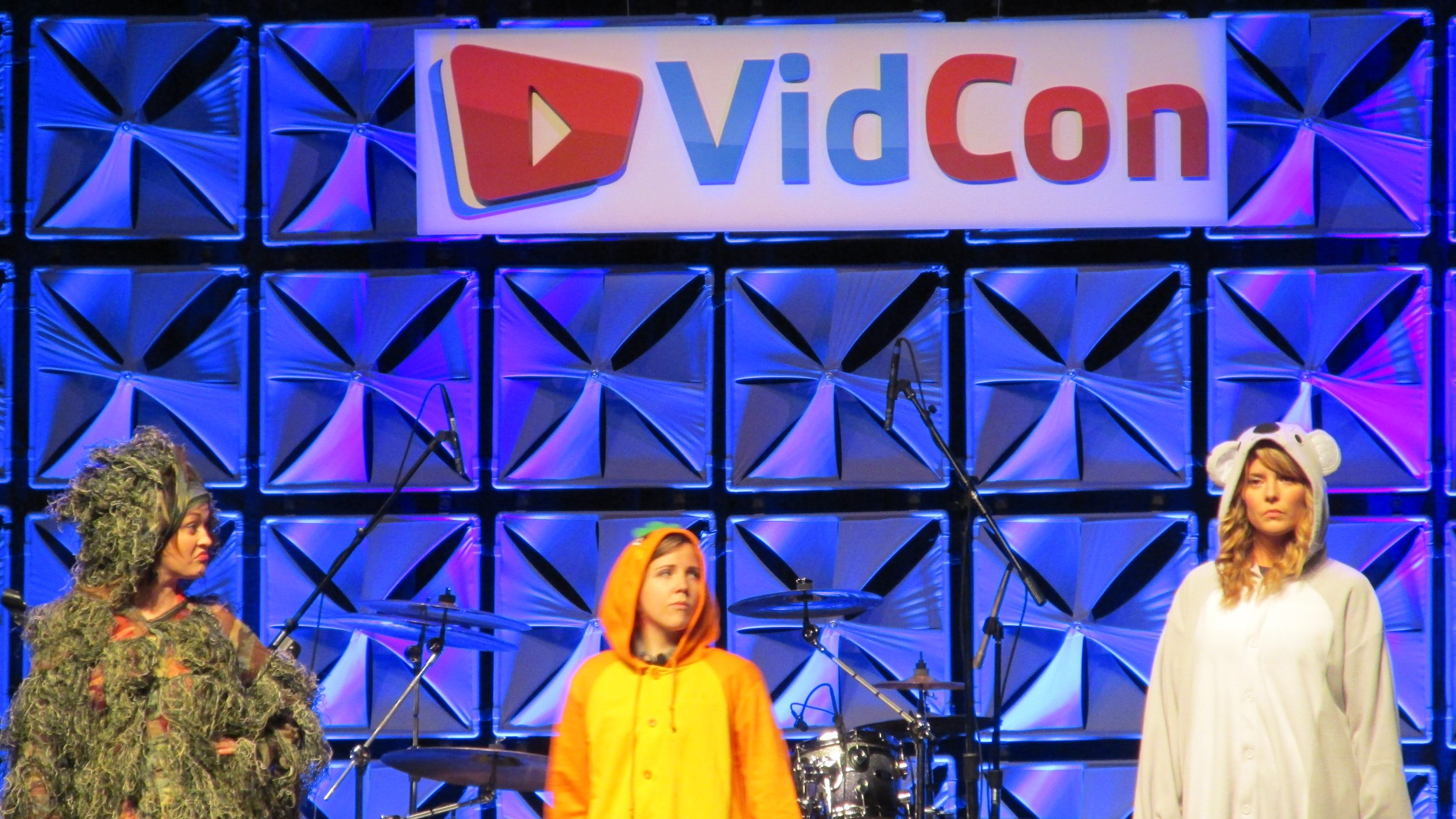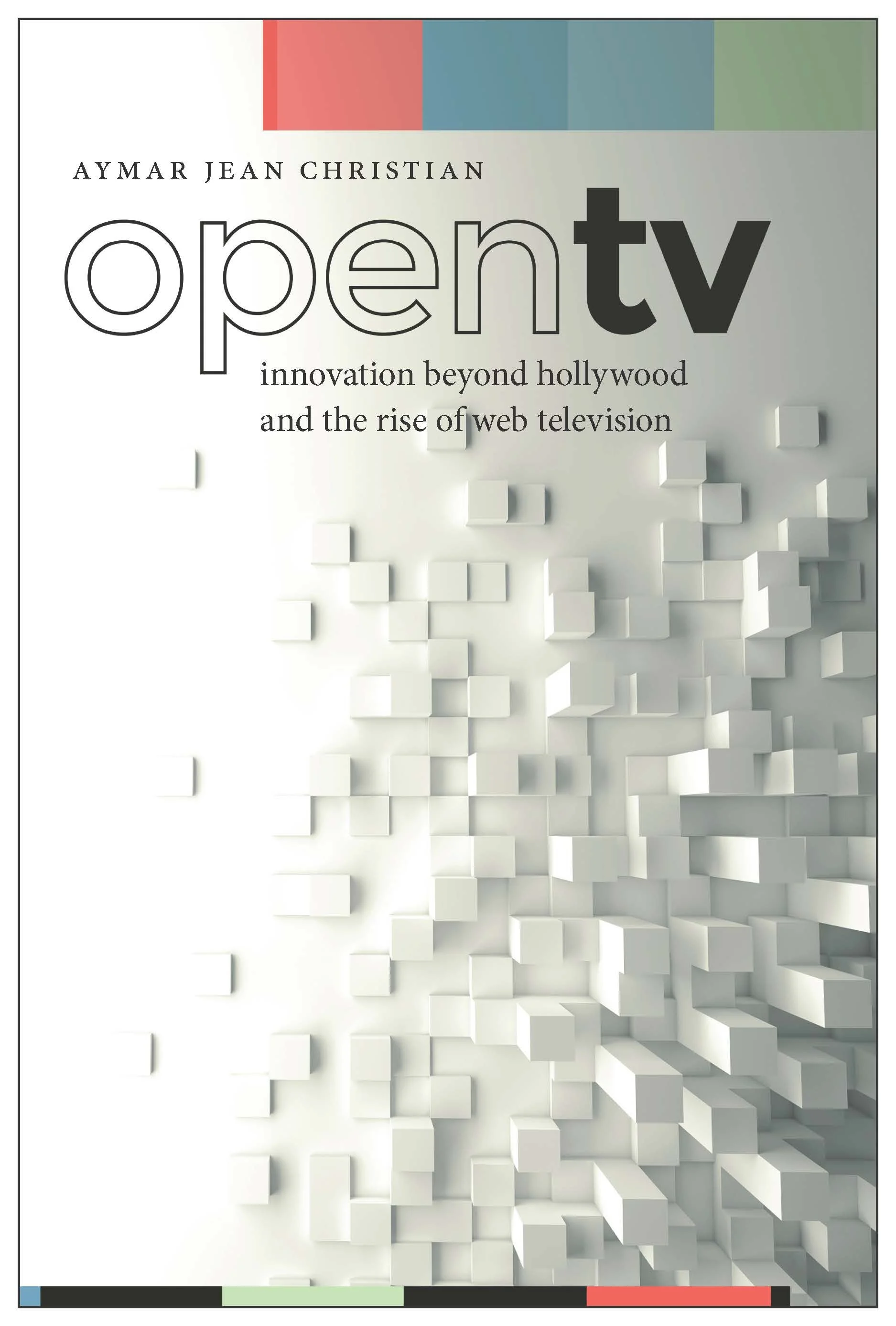
OPEN TV:
INNOVATION BEYOND HOLLYWOOD AND THE RISE OF WEB TELEVISION
Published on New York University Press (2018)
Available via NYU Press and Amazon!
Errata
Open TV: Innovation Beyond Hollywood and the Rise of Web Television introduces a trailblazing generation of storytellers. Based on interviews with over 100 writers, producers, entrepreneurs and network executives, I argue the web brought innovation to television by opening series development to independent producers, their fans and sponsors.
We have left the network era far behind and entered the networked era, characterized by an expansion and convergence of ways to develop programming. This book contrasts “open TV,” web or networked distribution, with “legacy TV,” linear or traditional network distribution, arguing the former fosters innovation and diversity in series development. Legacy television is characterized by scheduled and time-based distribution via broadcast, cable, or premium (subscription) networks like ABC, TNT or HBO, respectively. Most people understand the legacy system through multinational conglomerates comprising “Hollywood." The legacy system is one-to-many. We often call it “traditional,” since its roots stem from the very beginning of American television in the mid-20th century. The legacy development process is controlled by teams of network executives who solicit, license, and produce a select number of series. By contrast, open or networked television distribution occurs via internet or web protocols. It is digital, on-demand, and peer-to-peer, meaning any participant in the web—a producer, fan, sponsor—can directly connect to another at any time.
The Internet brought innovation to television by opening mass distribution to those excluded from legacy development processes, fostering new ways of creating and marketing series. To survive in an incredibly competitive market for television programming, open TV producers have to take risks and pilot projects by and for creative workers, sponsors, and fan communities, advancing innovation. Digital networking facilitates connections between television’s core value creators—producers, fans[i] and sponsors—faster and deeper than legacy distributors created in the mass media era. Open access to distribution gives producers a platform for creative expression and ownership, enables diverse storytelling for marginalized fan communities, and produces more dynamic ways of releasing, showcasing and rewarding shows for brands, sponsors, distributors and exhibitors. The open TV market demonstrates the value of opening access to distribution in markets where access has been restricted historically.
For a list of the book’s contributions to television, media and communication studies, read this blog post.
REVIEWS
“Media historian Michele Hilmes referred to the challenges with writing media histories as comparable to “nailing mercury.” In that sense, Christian nailed it.”
—David Craig, co-author of Social Media Entertainment, in the Journal of Communication
"Christian’s account of networked television is thrilling, current, and deep. He narrates a period when the story is up for grabs and even the 'postnetwork' era as we know it is on its way to becoming something else through the creativity and vitality of people old TV has left behind. Using stories full of driven energy yet equally steeped in a scholar’s recognition of the nature of the industry, this is one of the most remarkable books in television studies in quite some time."
—Lisa Henderson, author of Love and Money: Queers, Class, and Cultural Production
“Aymar Jean Christian shows us the need to reinvent television, a medium, he says, that has never fully represented the United States. Deeply engaged in the most pressing debates about the future of televisual and web culture, and written in sparkling prose, this book is chock full of inspiring stories of those working to make ‘open TV,’ this time, online, for all Americans.”
—Stuart Cunningham, author of Hidden Innovation: Industry, Policy and the Creative Sector
“There really isn't anything like this out there navigating this wild wild west of short form episodic on the web so this book is a super valuable piece of writing. I didn’t know how much I needed it! I appreciate the comprehensive origin and history. Really appreciate all the insights and case studies. As someone newly entrenched in the ‘legacy backed web’ I’ve been thinking a lot about the purity of the niche original indie series and ‘traditional’ less flex systems.”
—Christine Davila, Director of Development, Ojalá Productions
"THRILLED that Aymar Jean Christian has published his book at last. He's the only person writing about web series - their political value, potential, and the way they're engaging with/changing traditional TV - with the gravity the subject deserves."
—Adam Goldman, creator of The Outs (Vimeo) and Whatever this is
For an introduction to the kinds of producers and series in the book, check out the video above from a panel I moderated at Transforming Hollywood 5, a one-day conference convened by Henry Jenkins and Denise Mann at UCLA on April 4, 2014.
Featuring: Issa Rae (Insecure, Awkward Black Girl), Adam Goldman (The Outs, Whatever this is), Numa Perrier (Black & Sexy TV), Amy York Rubin (Boxed In, Little Horribles), Jay Bushman (Lizzie Bennett Diaries), Brad Bell (Husbands)


